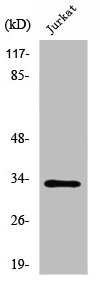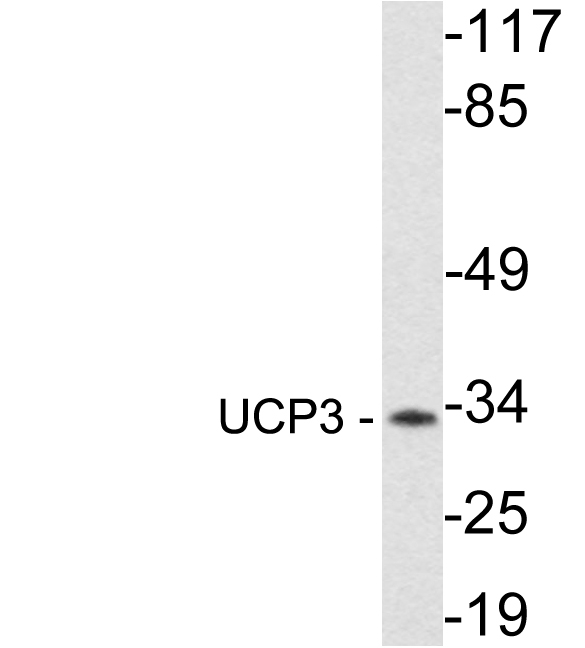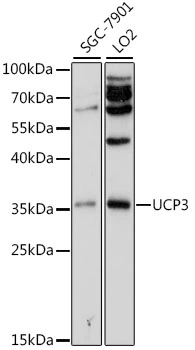UCP3 antibody
GTX10985
ApplicationsWestern Blot, ImmunoHistoChemistry, ImmunoHistoChemistry Paraffin
Product group Antibodies
ReactivityHuman, Mouse, Rat
TargetUCP3
Overview
- SupplierGeneTex
- Product NameUCP3 antibody
- Delivery Days Customer9
- Application Supplier NoteWB: 1:1,000. IHC-P: 1:3,000. *Optimal dilutions/concentrations should be determined by the researcher.Not tested in other applications.
- ApplicationsWestern Blot, ImmunoHistoChemistry, ImmunoHistoChemistry Paraffin
- CertificationResearch Use Only
- ClonalityPolyclonal
- ConjugateUnconjugated
- Gene ID7352
- Target nameUCP3
- Target descriptionuncoupling protein 3
- Target synonymsSLC25A9, putative mitochondrial transporter UCP3, mitochondrial uncoupling protein 3, solute carrier family 25 member 9, uncoupling protein 3 (mitochondrial, proton carrier)
- HostRabbit
- IsotypeIgG
- Protein IDP55916
- Protein NamePutative mitochondrial transporter UCP3
- Scientific DescriptionThe uncoupling proteins (UCPs) are found in the inner mitochondrial membranes and belong to a family of mitochondrial anion transport proteins that include the phosphate and oxologutarate carriers and the ADP/ATP translocator. Three UCP subtypes have been identified and cloned. UCP 1 is abundantly expressed in brown adipose tissue of mammals. UCP 1 allows proton re-entry into the mitochondrial matrix without involving the F0-F1 ATPase which produces heat instead of ATP. It is thought that UCP 2 and 3 also dissipate the mitochondrial proton gradient produced by the respiratory chain in cells and tissues within which they are expressed. Studies have shown UCP 2 to be expressed by a variety of tissues. UCP 3 is expressed predominantly in brown adipose tissue, skeletal muscle, at lower levels in heart and smooth muscle, and is absent in liver and kidney.
- ReactivityHuman, Mouse, Rat
- Storage Instruction-20°C or -80°C,2°C to 8°C
- UNSPSC41116161






